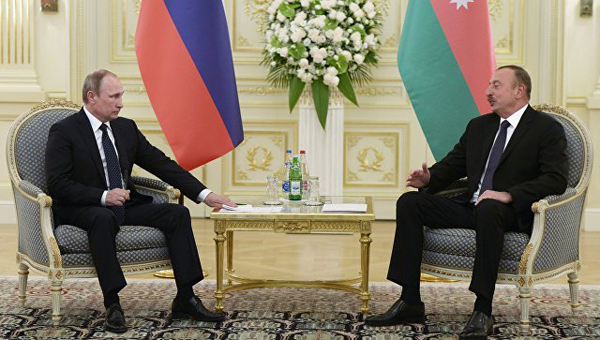What have Putin and Aliyev discussed in Sochi? When the Armenian media put the question this way and start to express themselves in an imperative or affirmative tone, I frankly get surprised on their awareness. It appears that any website of ours is so close to Putin or Aliyev, or in an extreme case, to the people to whom those two leaders tell everything, that can paraphrase what has been told to them in an article. It is clear that certain problems have occurred within the relations of those countries, one of the latest evidence is, I think, the “occupation” of Baku-Supsa gas pipeline by Russian armed forces in Georgia. However, one can speak about them solely based on visible facts, i.e. – on the consequences, as the professionals do (I refer to BBC publication) and not by making assumptions on who has whispered what in whose ear as a coffee reading elderly woman.
Well, if the Armenian websites know about what Putin and Aliyev have spoken, then they assuredly know, for example, what the topic of discussion between the President and the Prime Minister of Armenia was. And here they know not merely the topic, but also the modulations of the voices of the interlocutors, who has stood up at which moment and what glance he has thrown on the other one. People think if the media know those details of the secret meetings then whatever they write is true. The naive readers and users cannot presume that those details can be made out as well.
Of course, the unnecessary confidentiality of the authorities (not solely ours) contributes to that. I will bring a very old example. In 1993 I met with and greeted the Defense Minister of Russia Pavel Grachov face to face at the presidential residence. I came back to my room, the journalists started to call and give me questions whether it was true that Grachov was in Armenia. I checked out that I should answer as if I had no information on that and I did as I was told. But to hide that the high-ranked official of that level is in our country was not possible, and my so called escaping answer gave way to manifold presumptions and, naturally, “made-up details”. Take into consideration that the truth was not possible to hide even at those times when the internet, live broadcast and social networks did not exist. And what is left to say about today?
To satisfy the social interest and at the same time, surely, not to reveal state secrets requires a certain level of preparedness and professionalism, as well as willingness to work as transparent as possible. Even in free countries, the lack of this is noticeable. Trump’s administration is the vivid example of that.
ARAM ABRAHAMYAN




















































